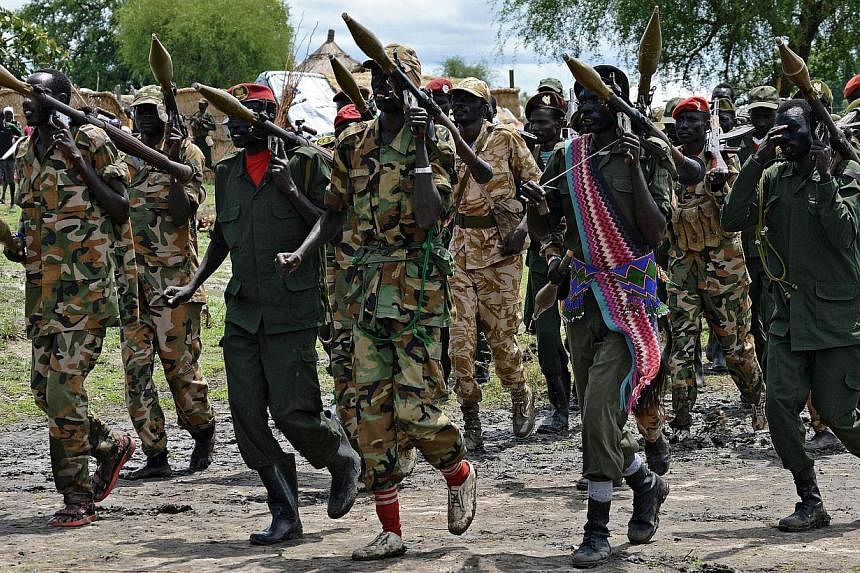OSLO (AFP) - The international community turns its gaze this week to conflict-torn South Sudan, where the UN says US$1.26 billion (S$1.57 billion) is needed to avoid a major humanitarian crisis threatening millions of people.
Donors meet on Tuesday in Oslo to reach out to some four million people - one third of the country's population - facing starvation in the African state, where rebel groups have been fighting government forces since mid-December.
"It's astonishing how much damage has been done: cities destroyed, lives shattered, empty markets, traders are now gone, kids left alone," said UN humanitarian coordinator in South Sudan Toby Lanzer.
"We have had an attack on a UN base in Bor. Civilians targeted... women raped, children raped and in six months things will get worse." According to the UN, around seven million South Sudanese may eventually need humanitarian aid.
The situation has become more critical with the imminent arrival of the rainy season, which will render the few existing roads and some landing strips impracticable, complicating the distribution of aid to vast areas of the country.
The UN raised its estimate of the humanitarian needs of the world's youngest nation last week to US$1.8 billion and, ahead of the Oslo conference, said it still lacked US$1.26 billion for aid operations in 2014 as well as stocking food for early 2015.
On Monday Norway announced a US$63 million donation and a day earlier Denmark committed to US$10 million but a number of donor countries have yet to respond to the UN appeal.
"We fear that the crisis will worsen significantly in the coming months," Norway's Foreign Minister Boerge Brende said in a statement.
At least 50,000 children are at risk of dying of malnutrition, according to Unicef and 740,000 children under the age of five are in severe risk of "food insecurity."
"Many are already resorting to eating wild foods such as bulbs and grasses," Unicef said in a statement.
South Sudan became independent in 2011 after a long and bloody war between Sudan and the Sudan People's Liberation Movement (SPLM) rebel group currently in power.
The fledgling country was plunged back into an ethnic conflict between its two main groups the Dinka and Nuer following a dispute between President Salva Kiir and his former vice-president Riek Machar in July 2013.
Despite signing a peace agreement on May 9, hostilities have continued, resulting in massacres and atrocities against thousands of civilians from both sides.
Mediators then announced Monday that the peace talks in Addis Ababa would pause for two weeks.
More than 1.3 million people have been displaced and many are living in extremely cramped and precarious conditions.
"Just to put things in perspective, an average IDP (internally displaced person) in a UN base has less space than Nelson Mandela had in his cell on Robben Island," said UN coordinator Lanzer.
There have been several reports of cholera outbreaks including one fatal case and aid organisations say it is already too late to save thousands threatened by disease and starvation.
"Tens of thousands of people have already died in South Sudan even if they still haven't taken their last breath," said Liv Toerres, head of the non-governmental organisation Norwegian People's Aid.
"It's a terrible thing to say, but that does not make it any less true. For many it's already too late. There isn't enough food produced and stored away before the rainy season begins."

